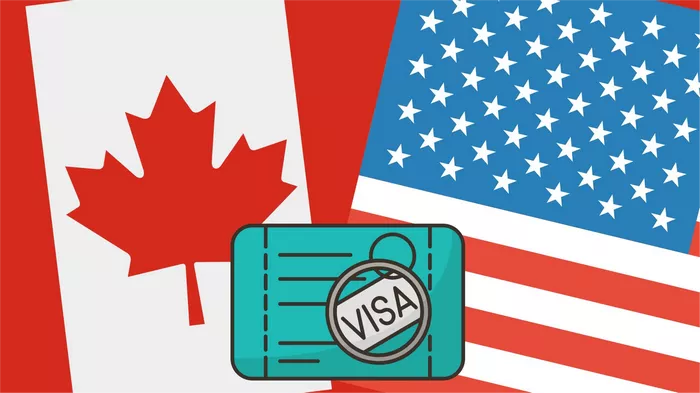Canada is a popular destination for immigrants seeking employment opportunities. Its thriving economy and high quality of life attract workers from around the world. Understanding which visa is required to work in Canada is crucial for those planning to move to the country for employment. This article provides a detailed guide on the types of work visas available, the eligibility criteria, and the application process.
Types of Work Visas
Canada offers various types of work visas, each catering to different employment situations. The main categories include:
Temporary Work Permits
1. Employer-Specific Work Permit
An employer-specific work permit allows you to work for a specific employer in Canada. It includes details such as the employer’s name, location of employment, and the duration of the work.
Eligibility Criteria:
- A job offer from a Canadian employer.
- A positive Labour Market Impact Assessment (LMIA) from Employment and Social Development Canada (ESDC), unless exempted.
- Meet the specific requirements of the job (skills, education, work experience).
Application Process:
- Obtain a job offer from a Canadian employer.
- The employer applies for an LMIA, if required.
- Apply for the work permit, including the job offer and LMIA.
2. Open Work Permit
An open work permit allows you to work for any employer in Canada, except for employers listed as ineligible due to non-compliance or those offering services such as erotic dance, escort services, or erotic massages.
Eligibility Criteria:
- Graduates of Canadian post-secondary institutions.
- Spouses or common-law partners of skilled workers or international students.
- Applicants under specific programs like the Working Holiday Visa, International Experience Canada (IEC).
Application Process:
- Determine your eligibility based on your situation.
- Apply online or on paper, providing necessary documentation such as proof of relationship (for spouses) or proof of graduation (for international graduates).
Permanent Work Visas
1. Federal Skilled Worker Program (FSWP)
The FSWP is part of the Express Entry system, designed for skilled workers with foreign work experience who want to immigrate to Canada permanently.
Eligibility Criteria:
- Meet the minimum requirements for skilled work experience, language ability, and education.
- Obtain at least 67 points out of 100 based on factors like age, education, work experience, language skills, and adaptability.
- Proof of funds to support yourself and your family.
Application Process:
- Check your eligibility and gather necessary documents.
- Create an Express Entry profile online.
- Receive an Invitation to Apply (ITA) if you meet the criteria and score high enough.
- Submit your application for permanent residence within 60 days of receiving the ITA.
2. Provincial Nominee Program (PNP)
The PNP allows provinces and territories to nominate individuals who wish to immigrate to Canada and are interested in settling in a particular province.
Eligibility Criteria:
- Each province has its own set of criteria, often targeting specific skills or occupations in demand.
- Meet the requirements of the provincial nomination program you are applying to.
Application Process:
- Apply to the province or territory where you want to live.
- Obtain a provincial nomination.
- Apply for permanent residence through the Express Entry system or the non-Express Entry process.
Specific Situations and Work Permits
1. Global Talent Stream
The Global Talent Stream (GTS) is designed for Canadian employers to hire highly skilled foreign workers quickly. It is part of the Temporary Foreign Worker Program (TFWP).
Eligibility Criteria:
- Employers must be eligible under the Global Talent Stream.
- The job must be in a high-demand occupation or involve unique and specialized talent.
Application Process:
- Employer applies to the GTS, providing a Labour Market Benefits Plan.
- If approved, the foreign worker applies for a work permit.
2. Intra-Company Transfers
This permit allows multinational companies to transfer employees to their Canadian branch, subsidiary, or affiliate.
Eligibility Criteria:
- The employee must have worked continuously for the company for at least one year.
- The transfer must be to a position in a managerial, executive, or specialized knowledge role.
Application Process:
- The Canadian employer submits the application, demonstrating the relationship between the companies and the employee’s role.
- The employee applies for the work permit.
see also: Path to a Canadian Work Permit: A Comprehensive Guide
General Application Process
Step-by-Step Guide
1. Determine Eligibility:
Assess your eligibility for the specific work visa category you are applying for. Review the requirements carefully and ensure you meet all criteria.
2. Gather Documentation:
Collect all necessary documents such as a valid passport, job offer, proof of work experience, educational credentials, and language test results.
3. Apply Online or on Paper:
Submit your application through the Immigration, Refugees and Citizenship Canada (IRCC) website or via a paper application,depending on the visa category.
4. Pay Application Fees:
Pay the required fees for processing your work permit application. Fees vary depending on the type of permit and processing times.
5. Biometrics and Medical Examination:
Provide biometrics (fingerprints and photo) if required, and undergo a medical examination if necessary.
6. Wait for Processing:
Processing times vary by visa type and application method. Check the current processing times on the IRCC website.
7. Receive Decision:
Once your application is processed, you will receive a decision. If approved, you will be issued a work permit.
8. Arrive in Canada:
Upon arrival in Canada, present your work permit approval letter to the border services officer. They will issue your actual work permit.
Conclusion
Understanding which visa is required to work in Canada is essential for anyone planning to pursue employment in the country. Whether you are applying for a temporary work permit or aiming for permanent residence through skilled worker programs, following the correct procedures and meeting the eligibility criteria will enhance your chances of success. Canada offers various pathways to work legally, providing opportunities for skilled workers to contribute to its growing economy.


